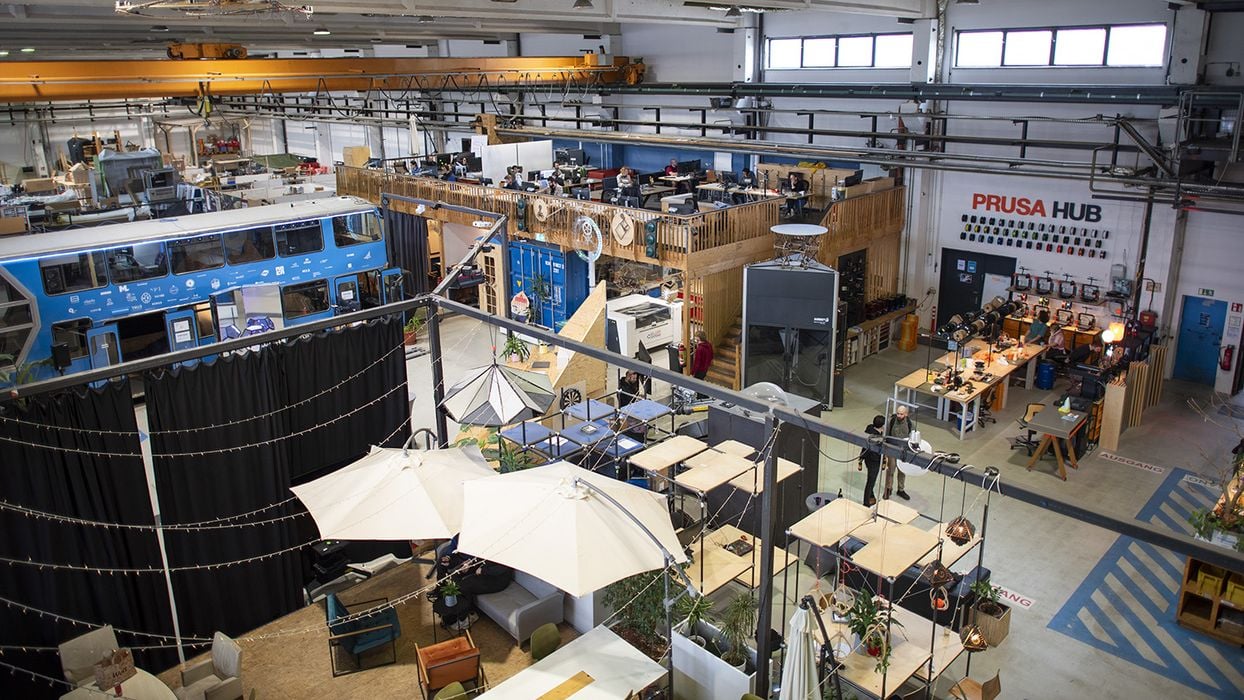
Prusa Research’s “Prusa Hub” concept was recently highlighted by the company, but what is it all about?
The Czech company manufactures a wide range of 3D printers, and some of them may be found in the company’s “Prusa Lab”. This is a startup accelerator focusing on manufacturing ventures. It provides not only access to 3D printing, but also consulting, workspace, other manufacturing processes and even financing. The idea is to encourage the emergence of new manufacturing companies for the future.
It’s a terrific idea, as that’s how we all should build new companies.
Last February, the company also launched something called the “Prusa Hub” in Berlin at MotionLab.Berlin, a large-scale makerspace for startups and others to produce physical prototypes and products.
Large-scale makerspaces typically offer a variety of manufacturing processes, beyond just 3D printing, and that is precisely what takes place at MotionLab.Berlin. The operation provides access to a wide range of equipment, which is listed on their website. Inventors can make prototypes based on parts made from a variety of machines.
What’s interesting is that their 3D printing area seems to be called the “Prusa Hub”. Prusa Research describes this as follows:
“Welcome to MotionLab.Berlin — an innovation hub full of tools, creative minds, and the world’s first maker space to house its very own Prusa Hub, a dedicated space equipped with all of the Original Prusa 3D printers!”
Evidently MotionLab.Berlin has some 20 Prusa 3D printers, including FFF devices like the MK4S and XL, along with resin 3D printing from SL1S devices. From the looks of the images, it would seem that Prusa Research is providing the 3D print capability for the makerspace.
But that isn’t quite the case. The MotionLab.Berlin website lists quite a variety of 3D printers, including several WASP large-format devices, Markforged equipment, Flashforge, Formlabs and even some from Bambu Lab.
As someone who created and operates a similar large makerspace, 3D print functions probably should not be obtained from a single source. The reason is that the range of possible 3D printing functions is so wide there really isn’t a single provider that covers it all.
In this case, MotionLab.Berlin’s WASP equipment can print furniture-sized pieces, and 3D print in clay materials. MotionLab.Berlin’s Markforged MarkTwo prints with continuous carbon fiber. Prusa Research’s current equipment line cannot do those functions.
In my space, we’ve found that 3D printing equipment changes frequently, especially recently. Equipment gets outdated very quickly these days, and a makerspace has to keep up: who would want to use outdated equipment? If a makerspace offers old 3D printers, individuals can often find older gear being given away that they use themselves without the need for makerspace access.
That seems to be solved with the Prusa Hub, as the equipment present seems pretty up to date — although the just-announced MK4S hasn’t made it there yet, which is quite understandable.
It’s not clear whether there is an official “Prusa Hub” program from Prusa Research, as the “world’s first” to house a Prusa Hub implies there might be one. I can’t find any information about it on their website.
It may be that Prusa Research helped sponsor this Prusa Hub, as there is very prominent advertising visible. Equipment manufacturers typically sponsor makerspace areas in this way, so it’s likely the same happened in Berlin.
Is it possible Prusa Research could be developing the Prusa Hub concept as a wider program for more makerspaces? While we don’t have any details, it seems that such a program could benefit many similar makerspace operations around the world. That is, if Prusa Research is actually broadening the Prusa Hub concept.
Via Prusa Research, Prusa Lab and MotionLab.Berlin
